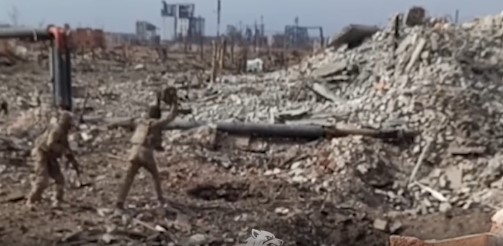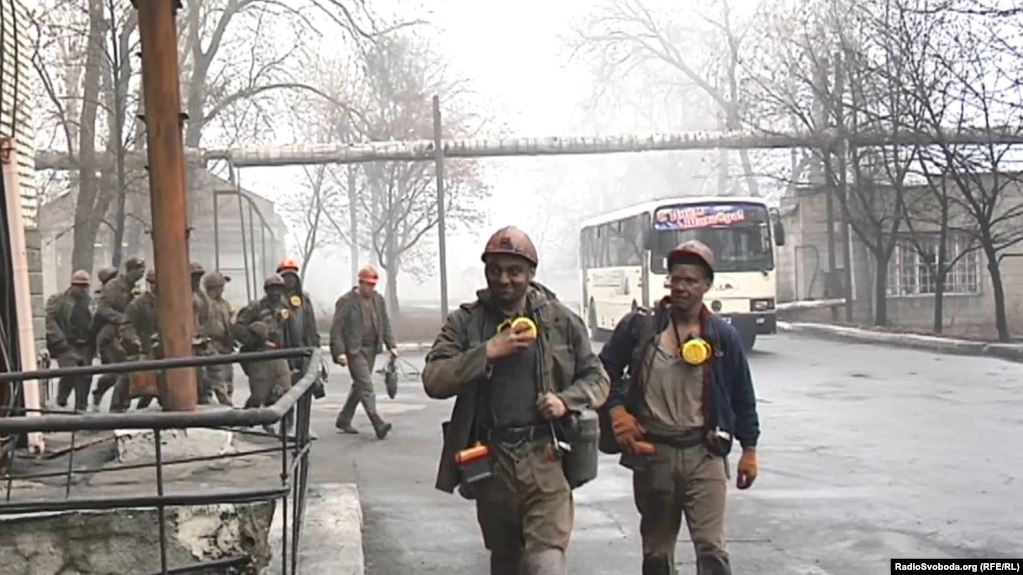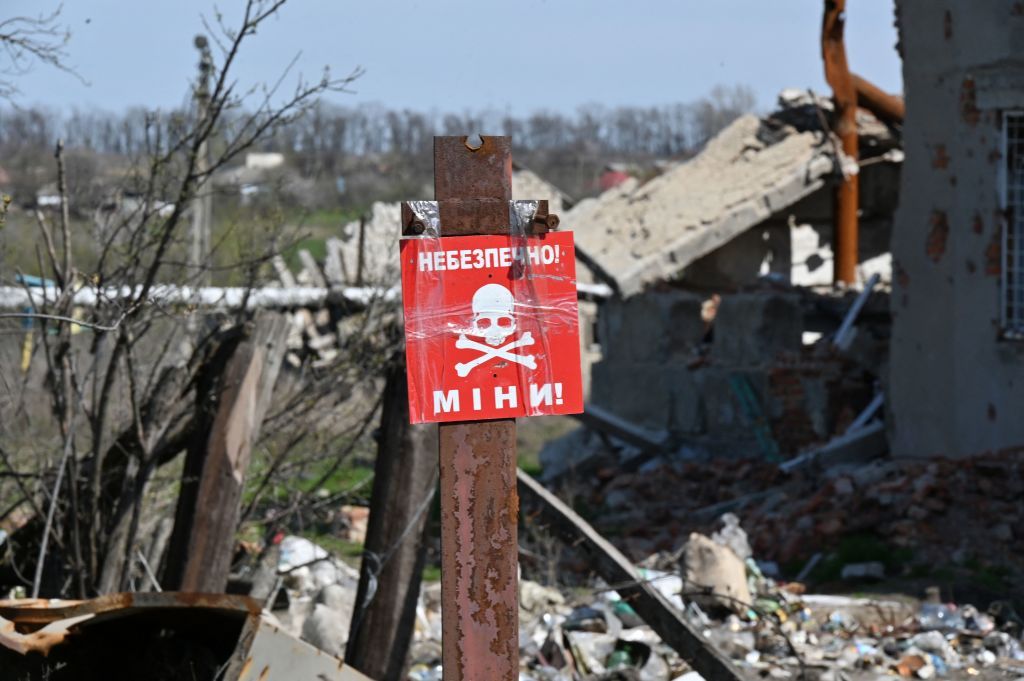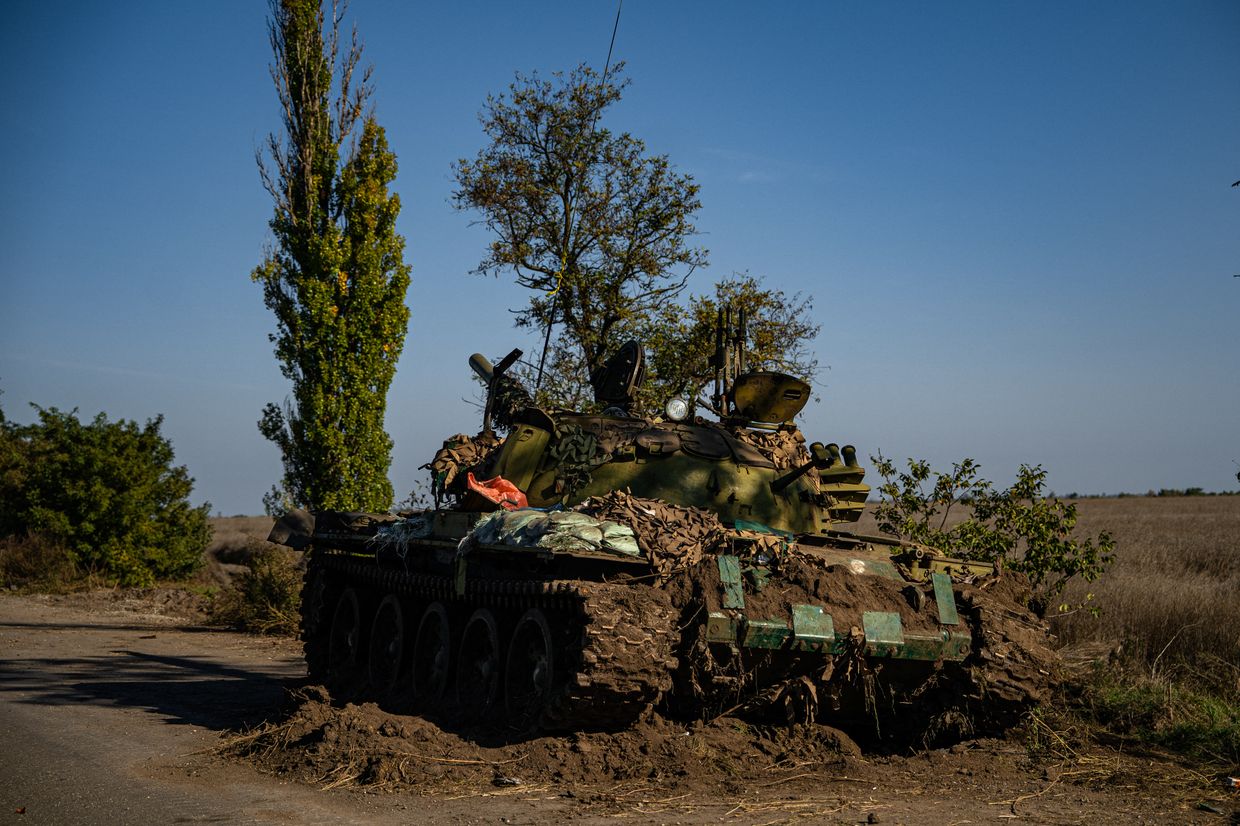F.B.I. Burns Methamphetamine Near Animal Shelter, Sickening Workers and Pets

© Matthew Brown/Associated Press


© Matthew Brown/Associated Press


Ukrainian forces destroy occupiers in their underground lairs. The 34th Separate Motorized Infantry Battalion “Wolfhounds” has demonstrated how the Ukrainian Armed Forces throw anti-tank mines into basements and underground tunnels where Russian occupiers are hiding.
In Vovchansk, nearly 90-95% of buildings have been incinerated. The destruction of the city is the result of Russia’s 2024–2025 offensive campaign in Kharkiv Oblast. On 10 May 2024, the Russian army launched an advance toward the city, attempting to break through Ukrainian defenses and capture Vovchansk. However, it has failed.
The conditions faced by Ukrainian infantry in Vovchansk go beyond human endurance. Enemy positions are just meters away, above ground, no buildings remain intact, and beneath the layers of concrete and asphalt, the occupiers’ fortifications and tunnels lie hidden.
“To flush out the enemy or destroy fortifications, we have to manually throw explosives into their lairs,” say the soldiers.
In Vovchansk, Kharkiv Oblast, Ukrainian infantry fight under extreme conditions
— Euromaidan Press (@EuromaidanPress) September 14, 2025
With enemy positions just meters away, no buildings left standing above ground, and fortified tunnels below, soldiers are forced to manually throw explosives into Russian hideoutsWolfhounds pic.twitter.com/aTfH4FtRDE
Russian forces use basements, sewer pipes, and reinforced tunnels to move personnel. The same tactics were used by the occupiers in Sudzha, Kursk Oblast.
The operation involved underground pipes of the Urengoy–Pomary–Uzhhorod gas pipeline, which Russia used to supply gas to Europe via Ukraine until 1 January 2025. Each pipeline section had a diameter of 1.4 meters.


The Russian private military company Wagner is experiencing serious setbacks in Mali: around two thousand fighters failed to improve security or control resources as they did in the Central African Republic. Instead of fighting jihadists, the mercenaries clashed with the Malian army, which only increased violence, reports the Foreign Intelligence Service of Ukraine.
After the 2021 coup, power in Mali was seized by a junta led by Assimi Goïta, who hoped for effective cooperation with Russian mercenaries. Instead, the JNIM network (Al-Qaeda in the Sahel) continues to strengthen its position in the region, and civilian casualties rose from 736 per year to over 3,000 in 2022–2024. Notably, 80% of deaths were caused not by jihadists but by the local army and Wagner forces.
Relations between Russian mercenaries and Malian forces sharply deteriorated: reports show disobedience to orders, equipment theft, and acts of racism. In August, repression targeted dozens of officers who disagreed with Wagner methods. Civilians subjected to terror refuse to cooperate with the mercenaries.
Unlike in Sudan and the CAR, Russia did not gain access to mineral resources, including gold mines. Goïta rejected Moscow’s demands and is seeking alternative partners for security and resource extraction.


As of 2.20 PM, all miners are now being brought to the surface. Power has been restored, and people are being evacuated from two mines.
In Donetsk Oblast, Russian shelling cut power to the mines of the Dobropillia community. 148 miners remain trapped underground, says Mykhailo Volynets, head of the Confederation of Free Trade Unions of Ukraine.
Dobropillia, located in Pokrovsk district of Donetsk Oblast, is an industrial center of a major coal region. The city is known for some of the largest coal deposits in Ukraine and gained city status in 1953.
During Russia’s aggression, Dobropillia became a zone of active combat. Regular shelling has damaged residential areas, social infrastructure, water supply, and power networks, making life difficult for local residents.
Due to the power outage, the mines remain without electricity. According to DTEK, Ukraine’s top energy company, the Russian attack hit a mine, killing one person and injuring three people.


President Volodymyr Zelensky signed a decree to withdraw from the Ottawa Convention banning anti-personnel mines, a step that follows the Baltic nations and Poland's move to boost their defense as the war rages on in Ukraine.
The 1997 treaty, joined by over 160 countries, bans the use, production, stockpiling, and transfer of anti-personnel landmines in efforts to protect civilians from the scattered explosives that could still injure them long after the conflict is over.
"Russia has never been a party to this convention and uses anti-personnel mines extremely cynically," Zelensky said in justifying the decision. "And not only now, in the war against Ukraine. This is the signature style of Russian killers — to destroy life by all methods at their disposal.
Earlier in March, the Baltic states and Poland announced their intention to withdraw from the Ottawa Convention, a significant shift in defense policy that shows how countries near Ukraine are preparing for a potential war in Europe.
Anti-personnel mines are scattered across the battlefield in Ukraine, with soldiers and civilians often losing their feet or limbs due to detonations. Territories liberated by Ukraine since 2022 have been heavily covered with mines, making it extremely difficult and dangerous to clear them. Russia has used more than a dozen variants of anti-personnel mines since it launched a full-scale invasion of Ukraine in 2022, according to Human Rights Watch's June report.
In a surprise move that angered Moscow, the Biden administration in 2024 approved the provision of anti-personnel mines to Ukraine. Then Defense Secretary Lloyd Austin said it was to help Ukraine stall the Russian advances in the east as the front-line situation deteriorated.
"This is a step that the reality of war has long demanded," lawmaker Roman Kostenko, secretary of the parliament's defense committee, said in the Facebook post announcing a significant move forward in withdrawing from the major mine treaty.
Now that Zelensky signed the decree enacting the decision of the National Security and Defense Council of Ukraine, it will land on the parliament's table, Kostenko said. The dates when the decision will take effect are still unclear.
 The Kyiv IndependentKateryna Denisova
The Kyiv IndependentKateryna Denisova


Finland's parliament voted on June 19 to withdraw from the Ottawa Convention banning anti-personnel landmines, citing growing security concerns from Russia's aggressive posture and the threat it poses to the region, Reuters reported.
The vote aligns Finland with its Baltic allies, Estonia, Latvia, and Lithuania, whose parliaments have already approved similar exits from the treaty.
Defending the decision earlier this week, Finnish President Alexander Stubb said the security reality along Finland's 1,300-kilometer (800-mile) border with Russia had changed dramatically since the full-scale invasion of Ukraine, according to TVP.
"The reality in the endgame is that we have as our neighboring country an aggressive, imperialist state called Russia, which itself is not a member of the Ottawa Treaty and which itself uses landmines ruthlessly," Stubb said.
Russia has widely deployed landmines across Ukrainian territory since launching its invasion in 2022, a tactic condemned by human rights organizations and Western governments.
Finland, which joined NATO in 2023, has significantly ramped up its defense posture amid growing concern over potential Russian provocations. The country closed its border with Russia over a year ago, accusing Moscow of orchestrating a "hybrid operation" by directing asylum seekers toward Finnish territory. Helsinki claims such hybrid tactics have intensified since it joined the alliance.
The Finnish Border Guard completed the first 35 kilometers (22 miles) of a planned 200-kilometer (124-mile) fence along its eastern frontier on May 21. The move came amid growing evidence of Russian military infrastructure expansion near the Finnish border.
Finland is "closely monitoring and assessing Russia's activities and intentions," Finland's Defense Minister Antti Hakkanen told AFP on May 22.
"We have excellent capabilities to observe Russian operations. As a member of the alliance, Finland holds a strong security position."
Russia's Defense Minister Andrei Belousov said in December 2024 that Moscow must be ready for a potential conflict with NATO within the next decade. Western officials have repeatedly warned of the possibility that Moscow could target NATO members in the coming years.
 The Kyiv IndependentDmytro Basmat
The Kyiv IndependentDmytro Basmat